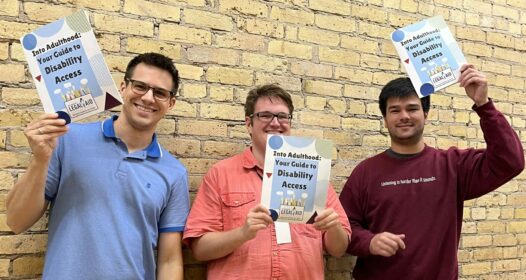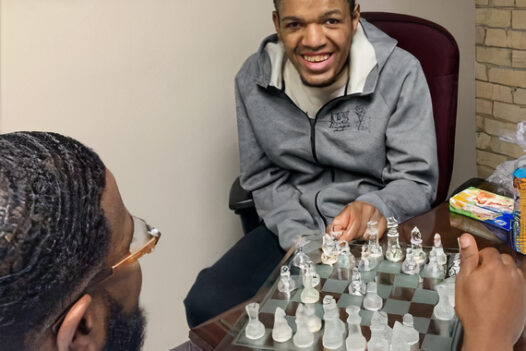Into Adulthood
Advocacy for youth with disabilities
Young adults with disabilities have the right to live, work and interact in the community. These rights come from a mix of federal and state laws and policies, including the Americans with Disabilities Act (ADA), the Workforce Innovation and Opportunity Act (WIOA) and Minnesota’s Olmstead Plan.
The Minnesota Disability Law Center helps youth with disabilities transitioning into adulthood understand their rights and find the resources they need to thrive. We also provide direct legal services on:
- Employment: Removing legal barriers to work and securing workplace accommodations. Our Client Assistance Project (CAP) helps people who are applying for or getting services from Vocational Rehabilitation Services (VRS) or State Services for the Blind (SSB).
- Community integration: Advocating for young people with disabilities to live, as much as possible, in the community with people of all abilities represented.
- Education: Improving access to disability-related services in school or transition programs for young adults aged 18-21; assisting with accommodations in career training programs and college; and helping to navigate discipline problems with schools.
- Anti-discrimination: Fighting for young people’s access to voting, government services and public businesses.

Into Adulthood Guide
Our guidebook, Into Adulthood: Your Guide to Disability Access, outlines programs, services and contacts that may be helpful for youth with disabilities ages 14-24 as they move beyond high school to live and work independently for the first time.
Resources
- Voting Rights: Podcast | Video
- Racial Disparities in School Discipline: Podcast | Video
- Into Adulthood and SAWV Presentation
- Getting Help with Work and College
- Into Adulthood with Jean Hauff
- Support for Young Folks with Disabilities

“Into Adulthood” improves disability access for young adults
Will was born with developmental disabilities. At 16, behavioral problems and a lack of advocacy landed Will at St. Peter Regional Treatment Center in a unit with adults who were mentally ill and aggressive. The 40 minutes of “educational services” he received there each day were spent filling out worksheets. A judge recognized the inappropriate placement and ordered Will’s release and assignment to a group home. The order specified educational services as a top priority. The State Ombudsman involved in the case invited our Minnesota Disability Law Center to help determine what those educational services should be.

